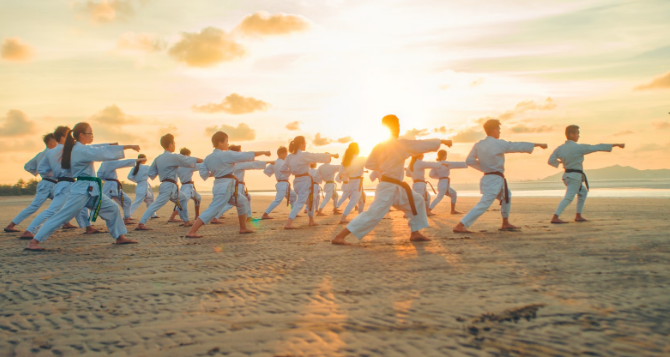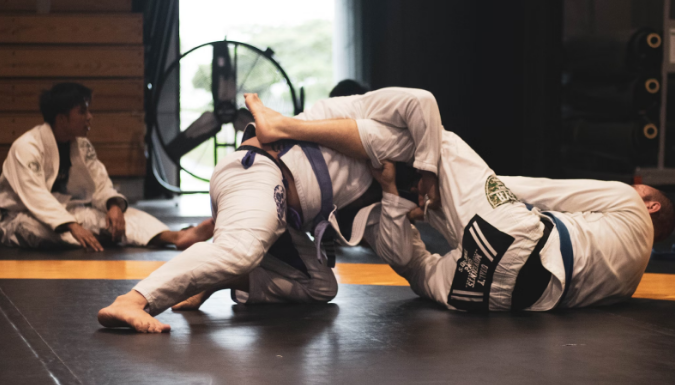
From Backstreets to Glory: Tunisia’s Martial Arts Rise
June 30, 2025 2:22 pm Leave your thoughtsIn Tunisia, martial arts are much more than just a sport. They have become a part of life, a way of breathing and thinking, especially in the bustling alleys of Sfax, in the schoolyards of Gabes, and, of course, in the packed arenas of Tunis. For many children, their first judo lessons are not just lessons, but a school of character.
The Role of Martial Arts in Tunisia’s Sports Culture
For teenagers who win their first taekwondo medal, such moments remain with them for life. It is not just about medals. Every success creates a sense of pride, shapes identity, and unites people. Tunisia’s love for martial arts is not accidental and certainly not superficial. Why have these disciplines penetrated so deeply into the local culture? It is time to find out.
Roots of Discipline and Tradition
Martial arts in Tunisia have been around for over half a century: it all started in the 1960s with judo, and the real boom happened after the Olympics in Seoul, when taekwondo burst into the spotlight. Watching fights, where athletes are focused and concentrated, can be no less exciting than following football bets (Arabic: تطبيق المراهنات), every move can turn the tide of the match. Over time, martial arts have become an integral part of the school curriculum, army training, and sports sections.
The central values—respect, self-control, and self-control—seem to have been created for Tunisia. Here, from the very beginning, it was not so much essential to fight as to earn a place through work and endurance. Now, thousands of boys and girls take their first steps on the tatami, inspired by these same principles.
Martial Arts in Everyday Life
In Tunisia, scenes of young men warming up in the yard or teenagers practicing their punches right on the street in the evening sun are no longer surprising. Here, martial arts go beyond the gym—they live on the streets, in the courtyards, even on the Internet. The same energy with which young people train is evident in the discussions on ميل بيت page. There you can find all the news and insider information from the world of sports, and disputes about the rules, favorite fighters, and chances of winning resemble a real verbal duel.
It is also important to note that judo lessons have long been included in the school curriculum, and police officers regularly learn to resolve conflicts according to the principles of aikido. Even in rural clubs, family martial arts evenings are held – there, confidence and mutual respect take precedence over medals. All this has become something more than just physical activity: it is already part of the daily rituals that shape the character of the younger generation.
Rising Stars and Local Champions
It is no surprise that this approach has paid off: the country has produced a whole generation of outstanding athletes. Tunisia is increasingly heard at major tournaments, from the Olympics to the African Championships. Here are four athletes who are spoken of with particular pride:
- Oussamma Oueslati: bronze medalist at the Rio Olympics (taekwondo), started at the Monastir club, and is now a real idol.
- Nichel Cheikh Roukhou: judo star, multiple African champion, and Tokyo Olympic participant. She has become a real role model for young girls.
- Yassine Trabelsi: one of the best fighters in taekwondo, gold medalist at the African Games, whose work ethic inspires young people in Kairouan.
- Bilel Sahli: African champion in karate, combining traditional shotokan and modern techniques. He often holds master classes throughout the country.
These athletes don’t just win. They become role models for thousands of kids who put on a belt for the first time and step onto the mat. They show how far you can go if you believe in yourself.
Training Grounds Across Tunisia
Martial arts have long since come out of the shadows—they live not somewhere in the backyards, but in modern, well-equipped halls that have become points of attraction for ambitious young people. Almost every major city in Tunisia has its own school, center, or club that locals know and respect. Here are some of the key training grounds where the real generation grows, character is tempered, and teamwork takes on meaning:
| City | Club/Center Name | Discipline Focus | Notable Programs |
| Tunis | Association El Hilal | Judo, Karate | National cadet training |
| Sousse | Club Olympique Sahloul | Taekwondo | Youth Olympic prep |
| Monastir | Academie de Combat MKS | MMA, Jiu-jitsu, Boxing | Pro-fighter development |
| Gabès | Centre Taekwondo Jihene | Taekwondo | Women-led instruction |
| Kairouan | Dojo Zaytouna | Karate, Aikido | Community defense classes |
Behind these walls, passions boil, coaches become second parents, and every mat is like a small life with its dramas, falls, and victories.

From Self-Defense to National Pride
The origins of the popularity of martial arts in Tunisia are in the desire to give young people not just strength, but fortitude and the ability to stand up for themselves. Parents wanted to see their children strong, but not aggressive. Teachers included karate and judo in lessons to teach concentration and deal with bullying. The military quickly adopted aikido and taekwondo, disciplines where reaction speed and self-control are important.
But in the early 2000s, everything changed: the first international medals, and the country began talking about a new sports phenomenon. The Ministry of Youth and Sports began to actively invest in development: new gyms, scholarships, and support programs. Judo and taekwondo are now consistently among the top three most popular sports among young people. Now it is not only about self-defense—it is about the prestige of the country, about the flag that you want to hold above all.
Women Breaking Barriers in the Ring
Today, Tunisian girls are not just participating in martial arts—they are breaking old patterns and dictating their own rules. Over the past twenty years, women’s sports have literally exploded: girls no longer sit in the stands and train “for themselves”, but lead, win and inspire others. Here are four athletes who have become a symbol of change:
- Nichel Cheikh Roukhou: multiple Olympic participant and African champion in judo, now trains the younger generation.
- Hiba Ayadi: the queen of Tunisian taekwondo, gold medalist of the 2023 African Games, and her signature punch is feared across the continent.
- Marwa Saidani: the first Tunisian woman to win an international MMA fight, now runs women’s self-defense camps.
- Sirine El Abed: captain of the national karate team, thanks to which Tunisia reached the final of the WKF World Cup in 2022.
They are not just fighters—they have become symbols. Thanks to them, hundreds of girls look at strength, courage, and their place in sports differently.
Global Influence, Tunisian Spirit
Tunisia is not just accepting the world martial arts culture — it is shaping it. In 2023, the Tunisian Taekwondo Federation hosted the African Championship in Hammamet: 42 countries, the highest level of organization, and second place in the team standings. Coaches from different countries noted the strong school, technical training, and bright young athletes.
Cooperation with other countries is only gaining momentum: taekwondo athletes go on internships to Korea, judokas to Japan. Even with a modest budget, Tunisians regularly participate in the Grand Prix, African Games, and Arab World Championships. Their style is recognizable: fast work, aggression, technique. Their message is simple — Tunisia has long been a world-class player.
Strength That Begins Within
Medals are great, but for Tunisian fighters, the most important thing is character. It’s not just the finish that matters, but also the moment when a child ties a belt for the first time, bows in silence before a fight, and hears the roar of the audience when he wins his first fight.
Martial arts ignite something inside that never goes out: pride, identity, an inner fire. And it doesn’t matter where the path leads—to the Olympic platform or the local sports club. The main thing is that this fire only grows stronger with age.
Categorised in: All Blogs
This post was written by meg
